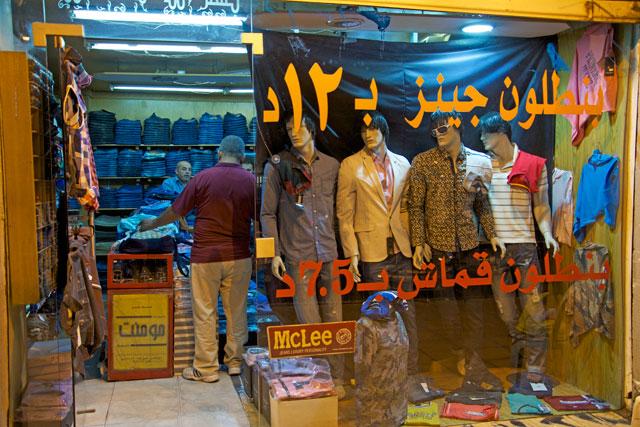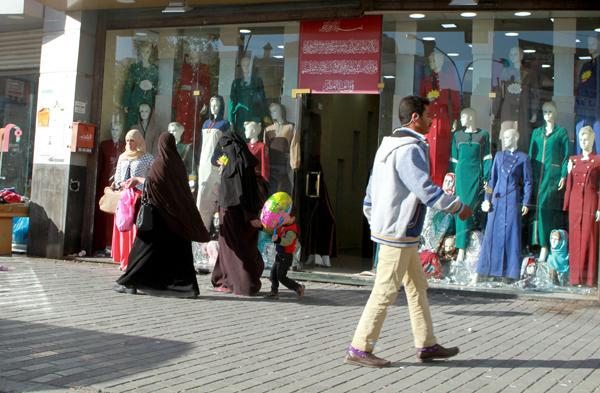You are here
Garment sector ‘hanging by a thread’, trade association claims
By Sawsan Tabazah - Jan 15,2017 - Last updated at Jan 15,2017

The average shopper bought four pieces of clothing in 2016, compared with five in 2015, according to the Garment Traders Association (Photo by Amjad Ghsoun)
AMMAN — The clothing sector has suffered a major drop in purchasing power, exports and imports, a sector leader said on Sunday.
Garment Traders Association President Sultan Allan said that seasonal sales and offers are not helping traders recover from the financial crisis.
Sales have decreased by an average of 40 per cent in Amman markets such as Jabal Al Hussein, 50 per cent in malls and 60 per cent in the governorates, Allan claimed.
According to the sector leader, sales in governorates such as Tafileh, Maan and Irbid have witnessed a “paralysis”, despite trade historically being higher than in Amman.
The Kingdom’s imports of garments have dropped from JD275 million in the first nine months of 2015 to JD232 million in the same period of 2016, a decrease by nearly 16 per cent.
Exports also dropped during the same period, from JD48 million in 2015 to JD36 million in 2016, according to Allan.
The average shopper bought four pieces of clothing in 2016, compared with five in 2015, the sector leader said.
He blamed “taxes, customs duties, high-rents, random licensing for shops, and the absence of laws regulating sales and offers in the market” for the sector’s losses.
Traders and retailers are unable to compensate for the high taxes with purchasing power, as taxes increase and sales decrease, Allan noted.
Around 15 to 20 per cent of garment traders are expected to leave the market, he warned in previous remarks to The Jordan Times.
“The association has tried to provide assistance for traders in their financial problems but it did not always succeed,” Allan said.
Meanwhile, retailer Hani Masri believes that uncontrolled sales and offers are affecting supply and demand, as there is ample supply, but waning demand from customers.
“People do not trust offers, as prices and discount percentages are sometimes misleading. On the other hand, traders’ debts will increase if a proper plan is not put in place,” Masri said.
Allan urged the Ministry of Industry, Trade and Supply to officially organise and regulate offers and discounts.
Related Articles
AMMAN — Garment stores in Amman have initiated sales early this season due to weak demand, Garment Traders Association (GTA) President Sulta
AMMAN — Around 15 to 20 per cent of garment traders are expected to leave the market next year, a sector leader claimed on Wednesday.Garment
AMMAN — The garment sector, which suffered a steep drop in sales last year, is asking the Ministry of Industry, Trade and Supply to fulfil i












